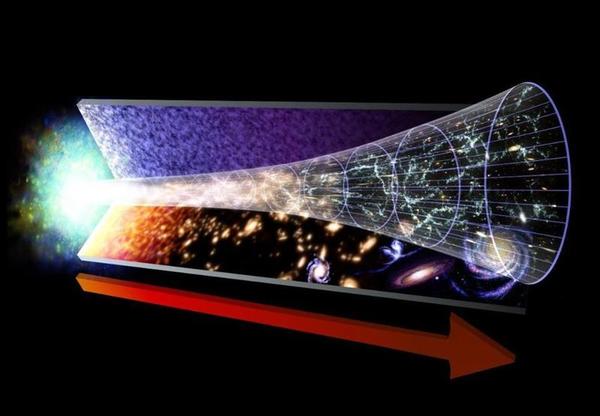What the Media Can Learn from Physics and Cosmology

Last week, astronomers from Arizona State University and MIT announced that they had detected light from the Universe's "Cosmic Dawn." The primordial signal, dated to a mere 180 million years after the Big Bang, emanated from hydrogen that had absorbed energy from the very first stars ever to shine. Paired with this grand discovery was an exhilarating surprise: the gas that comprised the early universe was colder than expected, hinting at the presence of cold dark matter!
Now, this is an incredible find, so one might think the scientists would race to blare it from the nearest media platforms – newspaper, television, Twitter, etc. – the second they discovered it.
But no. Perhaps the coolest fact about this finding is that after detecting the remarkable signal, the discoverers' first inclination was to disprove it. As Elizabeth Gibney reported for Nature News:
The finding was so stark that the researchers spent two years checking that it didn’t come from an instrumental effect or noise. They even built a second antenna and pointed their instruments at different patches of sky at different times. “After two years, we passed all of these tests, and couldn’t find any alternative explanation,” says Bowman. “At that point, we started to feel excitement.”
Two years of double-checking! And these scientists aren't alone in demanding such rigor. When particle physicists were pursuing the highly sought-after& Higgs boson, they waited to declare that they had discovered the Nobel Prize-worthy particle until there was just a 1 in 3.5 million probability that their data was simply due to random chance.
Compare this with the current media environment of "Tweet first, ask questions later." Reporters, media personalities, and yes, even our president, frequently fall prey to this modus operandi, to the detriment of fact.
The sad truth here is that patience doesn't usually pay. Attention-grabbing stories bring clicks and impressions, which govern influence and ad money. Fast and "breaking" is flashy. Slow and correct is just boring.
Moreover, more and more media outlets are doing away with any pretense of objectivity. When news sources are already biased, you can bet that their reporting will be colored by their ideological lenses. Nagging details and nuance will be ignored rather than learned from and contextualized. Legitimate disagreements will be painted not as debates, but as conflicts.
Get the Space.com Newsletter
Breaking space news, the latest updates on rocket launches, skywatching events and more!
Influencers, reporters, and others in the public information sphere should learn from cosmologists and physicists. Secure multiple sources. Filter out noise. Embrace nuance. When attempting to confirm an account or story, look to disprove it. Wait to report until the evidence is in. This process doesn't need to last two years, but maybe two days, or at least two hours!
Originally published on RealClearScience.
Join our Space Forums to keep talking space on the latest missions, night sky and more! And if you have a news tip, correction or comment, let us know at: community@space.com.
Steven Ross Pomeroy studied zoology and conservation biology, but has long had a passion for journalism and writing. His work as writer and editor appears at RealClearScience’s website, where he covers anything that sparks his curiosity and love of learning. More of his writing can be found at Big Think, Slate, Science Now, Gizmodo, and Scientific American.










